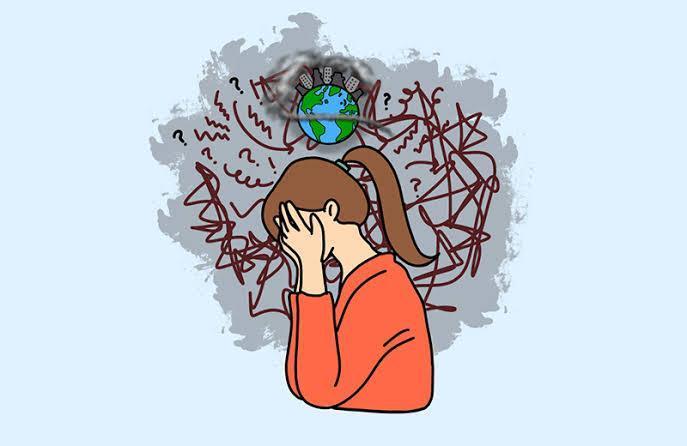How you can cope with Climate change Anxiety
How you can cope with Climate change Anxiety
Climate change has brought forth a new psychological phenomenon called "eco-anxiety." The term describes a feeling of unease experienced by those who are concerned about the environment, particularly the younger generations and parents of young children.
Climate change Fear Paddles
The daily barrage of news, such as bushfires, half a billion animals incinerated, drinking water shortages, and rising oceans, has left people feeling panicked, anxious, resigned, fatigued, guilty, outraged, and disconnected. Some people feel powerless or stuck, while others experience guilt and a sense of doom. There are those who suffer from "compassion fatigue," which is characterized by chronic physical and emotional fatigue, difficulty sleeping, irritability, and feeling numb and unmotivated.
It's clearer that climate change is no longer a distant threat. It is a reality we all have to live with, and it is taking a toll on our mental health. As we wake up to images of bushfires, floods, and droughts on our phones and TVs, we are bombarded with a sense of existential dread. It is difficult not to feel overwhelmed, anxious, and powerless in the face of such a massive challenge. Meanwhile, younger millennials and Generation Z, as well as parents, are facing an uncertain future. Those who already suffer from an underlying mood disorder, like mild anxiety, may find it even more challenging to cope with eco-anxiety.
So, how can we cope with Climate Anxiety? Navigating through Eco-anxiety
- Acknowledge that eco-anxiety is a valid response to the climate crisis. It is not a sign of weakness, but a natural reaction to a real and urgent threat. It is okay to feel overwhelmed, sad, or angry about what is happening to our planet. However, it is also important not to let these emotions consume us.
One of the biggest challenges of coping with eco-anxiety is the constant bombardment of bad news. Every day, we are confronted with stories of disasters and tragedies that can leave us feeling numb and helpless. To avoid compassion fatigue, it is crucial to find a balance between staying informed and taking breaks from the news. Limit your exposure to social media and TV if it is making you feel overwhelmed. Instead, seek out positive stories and actions that give you hope and inspiration. - Cope by taking action. While it is easy to feel powerless and disconnected, there are many ways to make a difference. Joining a local environmental group, volunteering for a conservation project, or simply reducing your carbon footprint can give you a sense of purpose and agency. Remember, every little action counts, and together, we can make a big impact.
- Get Familiar with Nature: Spending
time in nature can have a profound impact on our well-being and help us move forward when we feel stuck. Studies have shown that, the more time we spend in nature, the deeper our connection to it becomes, and we realize that we are a part of it.
However, for those who are deeply distressed about the state of the environment, simply being in nature may not be enough to alleviate their anxiety. Likewise, focusing on land restoration and land use, and you witness degraded habitats, such as mowed lawns, monoculture farms, or invasive species, can be triggering.
In this case, it better to create a safe space where you can enjoy nature without being overwhelmed by negative emotions. You can set up an area like a garden with native pollinator-friendly plants where you can relax and appreciate the beauty of nature without being triggered by what is wrong with the environment - Take care of your mental health. Exercise, meditation, and spending time in nature are all great ways to reduce stress and anxiety. Talk to your friends and family about how you are feeling and seek professional help if needed. Many mental health services offer support for eco-anxiety, and there are also online resources available.
6 Foster a sense of community and connection. The climate crisis affects us all, and we need to work together to find solutions. By connecting with others who share your concerns and values, you can feel less isolated and more empowered. Whether it's joining a local activism group or simply having a conversation with your neighbor, every interaction counts.
Foster a sense of community and connection. The climate crisis affects us all, and we need to work together to find solutions. By connecting with others who share your concerns and values, you can feel less isolated and more empowered. Whether it's joining a local activism group or simply having a conversation with your neighbor, every interaction counts.
Eco-anxiety is a valid and natural response to the climate crisis, but it is essential not to let it consume us. By finding a balance between staying informed and taking breaks from the news, taking action, taking care of our mental health, and fostering a sense of community, we can cope with eco-anxiety and work towards a more sustainable future. Remember, we are all in this together
